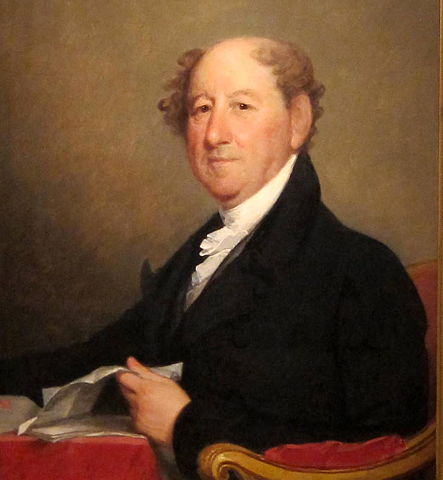
Rufus King, a life-long politician and skilled orator, represented Massachusetts at the Constitutional Convention. In the new national government, he represented New York in the U.S. Senate. A loyal Federalist, King was the party’s last presidential candidate in 1816.
Early Life
Rufus King was born on March 27, 1755, in Scarboro, Maine, which was then part of Massachusetts. His father was a wealthy farmer and merchant with close ties to the British government. In response to the elder King’s support for the controversial Stamp Act, the family’s house was ransacked by a mob of local Patriots. They returned a year later and burned down the family’s barn.
Rufus King attended Dummer Academy and then Harvard College. After graduating, King studied law under Theophilus Parsons, who later became the Chief Justice of Supreme Judicial Court of Massachusetts.
Revolutionary War
While his father was a Loyalist, King supported the Patriot cause. He interrupted his legal training to enlist in the Massachusetts’ militia during the Revolutionary war. Appointed a major of infantry, King served as an aide to Major General John Sullivan and fought in the Battle of Rhode Island. After the campaign ended, King returned to his legal education under Parsons. He was admitted to the bar in 1780.
In 1783, King entered public service as a member of the Massachusetts General Court. He served in the Massachusetts legislature until 1785. He also represented the state in Confederation Congress from 1784 to 1787.
Constitutional Convention
Massachusetts also appointed King to represent the state at the Constitutional Convention. While he was one of the youngest delegates, King was a skilled orator and played a significant role at the Convention. He also attended every session.
Alongside James Madison, King argued in favor of a strong national government. King served on the Committee on Postponed Matters and the Committee of Style and Arrangement, which drafted the language that would become the final draft of the U.S. Constitution.
Public Office in New Government
Once the Constitution was ratified, Alexander Hamilton encouraged King to move to New York City to run for political office. In 1789, King was elected to represent New York in the U.S. Senate, a position he held until 1796. In 1796, President George Washington named him Minister to Great Britain. King retired from the post in 1803.
King served as the Federalist vice presidential candidate in the 1804 and 1808 elections, losing both times alongside Charles Cotesworth Pinckney. In 1816, King was the Federalist party’s presidential candidate. He lost the election in a landslide to Democratic-Republican candidate James Monroe.
King returned to the Senate in 1813, and served another two terms. During his tenure in the Senate, King chaired the Committee on Roads and Canals and the Committee on Foreign Relations. King died on April 29, 1827, in New York City.








